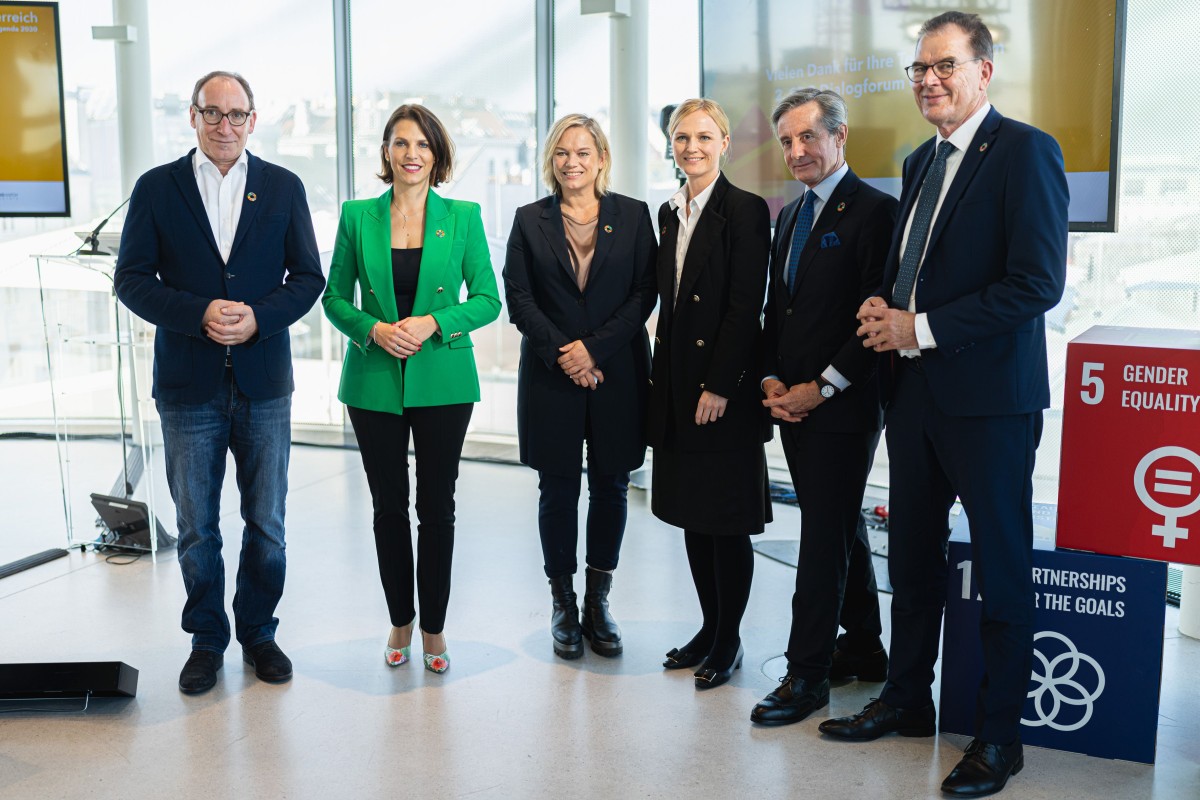Sponsored Content
Second SDG Dialogue Forum in Austria
The Austrian Federal Administration, SDG Watch Austria and the Ban Ki-moon Centre for Global Citizens 2022 organized the second SDG Dialogue Forum in Vienna. Against the backdrop of the current crises in the world, the second SDG Dialogue Forum focused on cooperation between politics, civil society, media and NGOs.
 Federal Minister Karoline Edtstadler (2nd from left), Federal Minister Johannes Rauch (l.), Secretary General Peter Launsky-Tieffenthal (5th from left) and Gerd Müller (UNIDO) (r.) participated in the 2nd SDG Dialogue Forum Austria. / Picture: © Bundeskanzleramt (BKA) / Florian Schrötter
Federal Minister Karoline Edtstadler (2nd from left), Federal Minister Johannes Rauch (l.), Secretary General Peter Launsky-Tieffenthal (5th from left) and Gerd Müller (UNIDO) (r.) participated in the 2nd SDG Dialogue Forum Austria. / Picture: © Bundeskanzleramt (BKA) / Florian Schrötter
The SDG Dialogue Forum, organized by the Federal Administration, SDG Watch Austria and the Ban Ki-moon Centre for Global Citizens, is dedicated to the implementation of the 2030 Agenda and its 17 Sustainable Development Goals (SDGs) together with experts from administration, business, civil society and academia.
The war in Ukraine, the climate and energy crisis, the ongoing…
or Log In
Fast News Search





